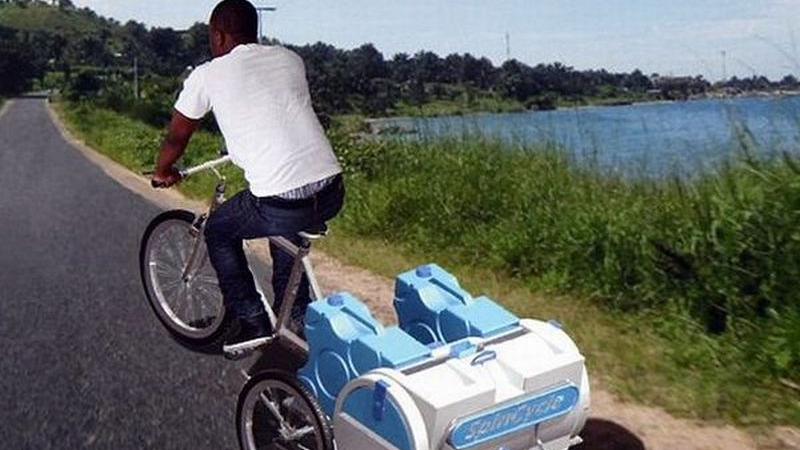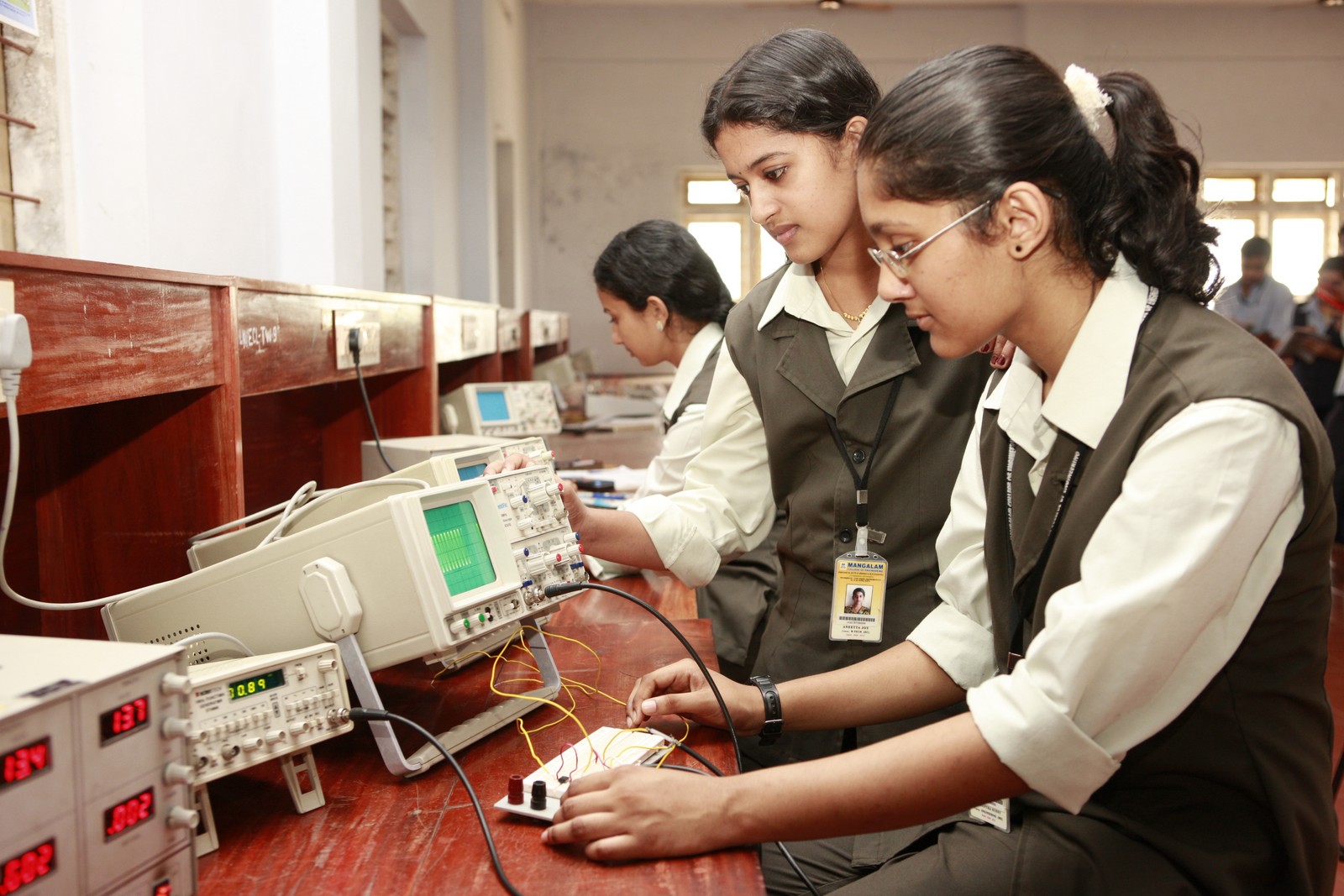
Dans le monde des machines à laver entièrement automatiques, le SpinCycle n'est peut-être pas le moyen idéal pour faire votre lessive. Mais Richard Hewitt, ancien étudiant en conception de produits à l'Université de Sheffield Hallam, espère que sa machine à laver à pédales sera peut-être le produit parfait pour les habitants des pays en développement.
Vous chargez l'appareil de vêtements, de détergent et d'eau, puis vous le placez à l'arrière d'un tricycle. Puis pédalez pendant dix minutes. L'étape suivante consiste à vidanger et à remplir d'eau de rinçage avant une autre séance de pédalage de dix minutes pour terminer le lavage. La même méthode peut également être utilisée pour essorer les vêtements une fois qu'ils sont propres.
Richard a été inspiré pour construire le SpinCycle après avoir visité un orphelinat pour enfants au Burundi, en Afrique. L'une de ses tâches à l'orphelinat était de laver à la main une trentaine de charges de vêtements pour enfants. Cela prenait énormément de temps et Richard pensait qu'il devait y avoir un moyen plus simple.
Ayant remarqué que les gens utilisaient beaucoup le vélo dans le coin, Richard a eu l'idée de SpinCycle - quelque chose qui pourrait devenir une micro-entreprise pour les gens. « En plus d’économiser beaucoup de temps, d’énergie et d’eau, les gens pourraient également gagner un peu d’argent de cette façon », expliquai-je. Il a mentionné qu'il avait envisagé plusieurs autres façons de le faire fonctionner efficacement. "J'ai envisagé d'en faire une remorque pour vélo, mais il était plus logique d'en faire une unité complète", a-t-il déclaré.
« En supprimant les aspects esthétiques, le design pourrait facilement être simplifié et rendu moins cher. »
Le design a été exposé dans le cadre de l'exposition « CreativeSpark » de Sheffield Hallam. Il a également remporté le Shell LiveWIRE Grand Ideas Award pour janvier 2012. SpinCycle prévoit de créer une usine pour fabriquer le produit en Afrique et de le distribuer à travers une série d'organisations caritatives et d'ONG pour atteindre les communautés qui n'ont pas accès à l'électricité, en leur donnant un méthode alternative de lavage des vêtements.
In the world of fully-automatic washing machines, the SpinCycle may not be the ideal way of getting your laundry done. But Richard Hewitt, a former product design student at Sheffield Hallam University, is hoping that his pedal-powered washing machine may just be the perfect product for people in developing countries.
You load the device with clothes, detergent and water, and then fit it onto the back of a tricycle. Then pedal for ten minutes. The next step is to drain and fill with rinse water before another ten-minute pedalling session to complete the wash. The same method can also be used to spin dry the clothes once they are clean.
Richard was inspired to build the SpinCycle after visiting a children’s orphanage in Burundi, Africa. One of his tasks at the orphanage was to wash around 30 loads of children’s clothes by hand. That was extremely time consuming and Richard thought that there must be an easier way.
Having noticed that people around there used bikes a lot, Richard came up with the idea of SpinCycle – something that could become a micro-enterprise for people. ‘As well as saving a lot of time, energy and water, people might also be able to make a little bit of money this way’, he explained. He mentioned that he had considered several other ways of making it work efficiently. ‘I looked at making it into a trailer for a bicycle but it made more sense to make it a complete unit,’ he said.
‘By removing the aesthetic aspects the design could easily be simplified and made cheaper.’
The design was exhibited as part of Sheffield Hallam’s ‘CreativeSpark’ exhibition. It also won the Shell LiveWIRE Grand Ideas Award for January 2012. SpinCycle plans to set up a factory to manufacture the product in Africa and distribute it through a range of charities and NGOs to reach communities that do not have access to electricity, giving them an alternative method of washing clothes.

Startup
A startup or start-up is a company or project undertaken by an entrepreneur to seek, develop, and validate a scalable business model. While entrepreneurship refers to all new businesses, including self-employment and businesses that never intend to become registered, startups refer to new businesses that intend to grow large beyond the solo founder. At the beginning, startups face high uncertainty and have high rates of failure, but a minority of them do go on to be successful and influential. Some startups become unicorns; that is privately held startup companies valued at over US$1 billion.
Actions
Startups typically begin by a founder (solo-founder) or co-founders who have a way to solve a problem. The founder of a startup will begin market validation by problem interview, solution interview, and building a minimum viable product (MVP), i.e. a prototype, to develop and validate their business models. The startup process can take a long period of time (by some estimates, three years or longer), and hence sustaining effort is required. Over the long term, sustaining effort is especially challenging because of the high failure rates and uncertain outcomes. Having a business plan in place outlines what to do and how to plan and achieve an idea in the future. Typically, these plans outline the first 3 to 5 years of your business strategy.
Design principles
Models behind startups presenting as ventures are usually associated with design science. Design science uses design principles considered to be a coherent set of normative ideas and propositions to design and construct the company's backbone. For example, one of the initial design principles is "affordable loss".
- Log in to post comments